The links provided below will take you to the unit webpages on Baylor’s BioEd Online website.

Air, Atmosphere and Living Systems
Grades 3–5: Students explore basic concepts related to air and the atmosphere, air quality, and associated issues, such as allergens in the places we live, study and work. Science activities are supplemented with a storybook, Mr. Slaptail’s Secret, Explorations magazine, and include reading and math worksheets.

All About Food
Grades 3–5: Students investigate food sources, food webs and food chains, healthy eating and food groups, food safety and overall nutrition. Science activities are supplemented with a storybook, The Mysterious Marching Vegetables, Explorations magazine, and include reading and math worksheets.
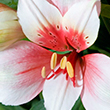
Allergies and Allergens
Grades 3–5: Students learn about allergies and what can cause an allergic reaction (dust, pollen, insects, foods). They also use survey techniques to gather information. The unit includes two storybooks, Cockroach School and the Bigfoot Monsters, and Where's Noah?

Global Atmospheric Change
Grades 3–5: Students investigate different sources of energy and how they can affect the atmosphere and global ecology. Science activities are supplemented with a storybook, Mr. Slaptail’s Curious Contraption, Explorations magazine, and include reading and math worksheets.
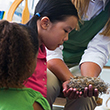
Living Things and Their Needs
Grades K–2: The Living Things and Their Needs Teacher’s Guide allows very young students to explore living and non-living things, and learn about the basic needs of plants, animals and people. Science activities are integrated with a storybook, Tillena Lou’s Day in the Sun, and include reading and math worksheets.
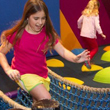
PowerPlay: Fitness and Physical Activity
Grades 3–5: PowerPlay lessons, conducted in conjunction with physical challenges at the Children’s Museum of Houston’s PowerPlay exhibit, promote student understanding, positive attitudes, and healthy behaviors related to physical activity and diet.

Resources and the Environment
Grades K–2: Very young students explore how living things (including humans) use resources found naturally in their environments, or modify resources to meet their needs. Science activities are integrated with a storybook, Tillena Lou’s Big Adventure, and include reading and math worksheets.
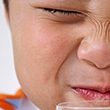
The Senses
Grades K–2: Students learn about the basic characteristics and structures of the brain, skull and sensory system; investigate sight, hearing, smell, taste and touch; and discover how the brain and the senses are connected. An introductory picture book, Making Sense! is available in PDF format and as a slide set.
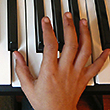
Train Your Brain: The Neuroscience of Learned Behaviors
Grades 3–5: How do we learn new skills? Are there different types of memories? Students investigate behaviors that occur without conscious thought, as well as skills that can be acquired or improved.








